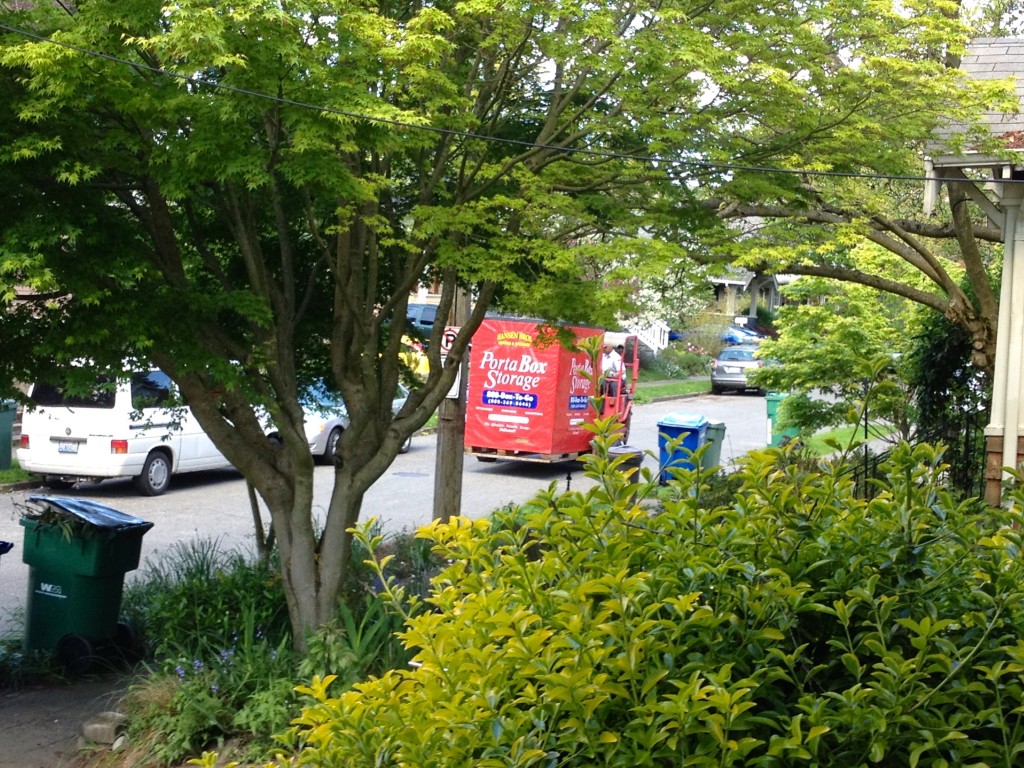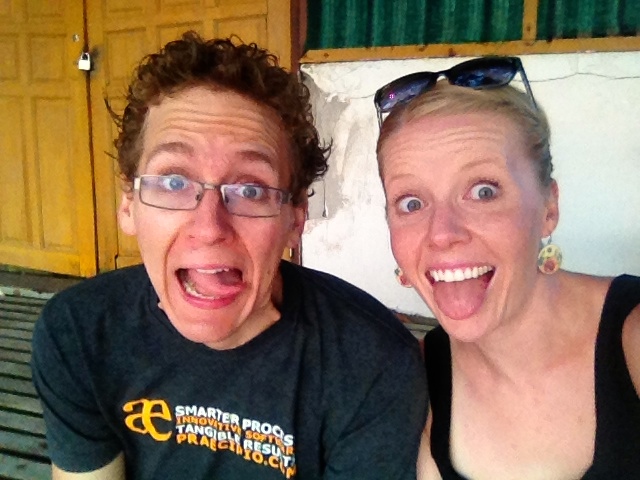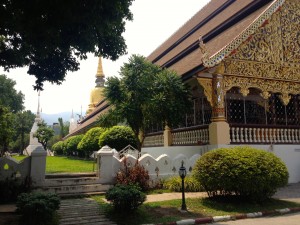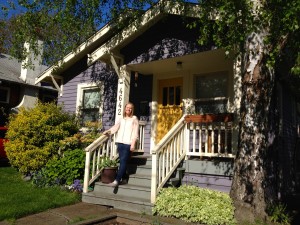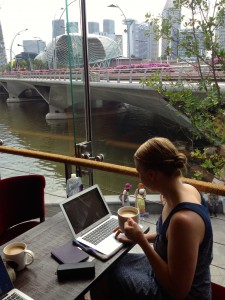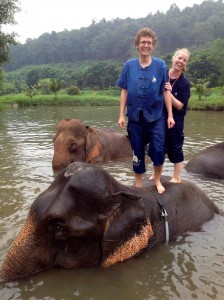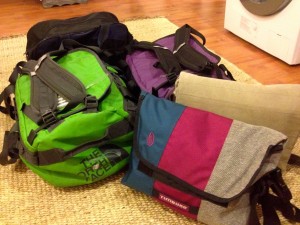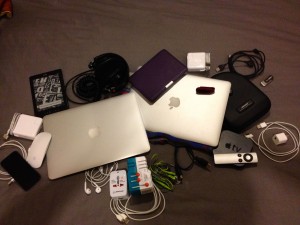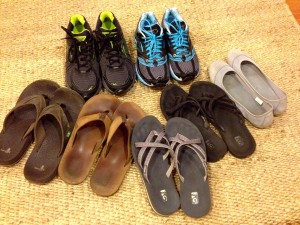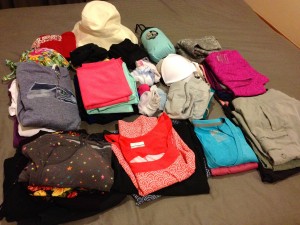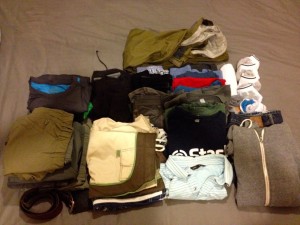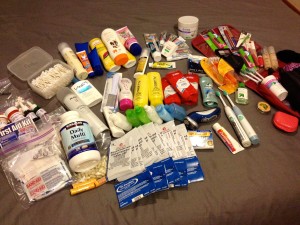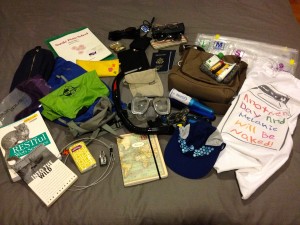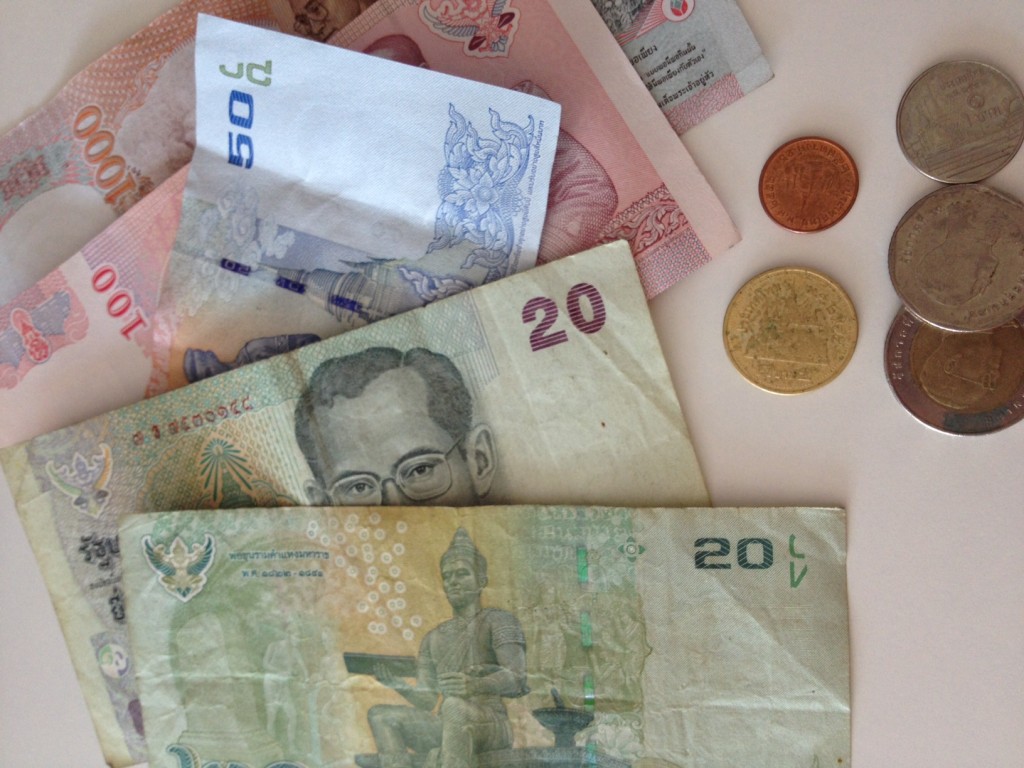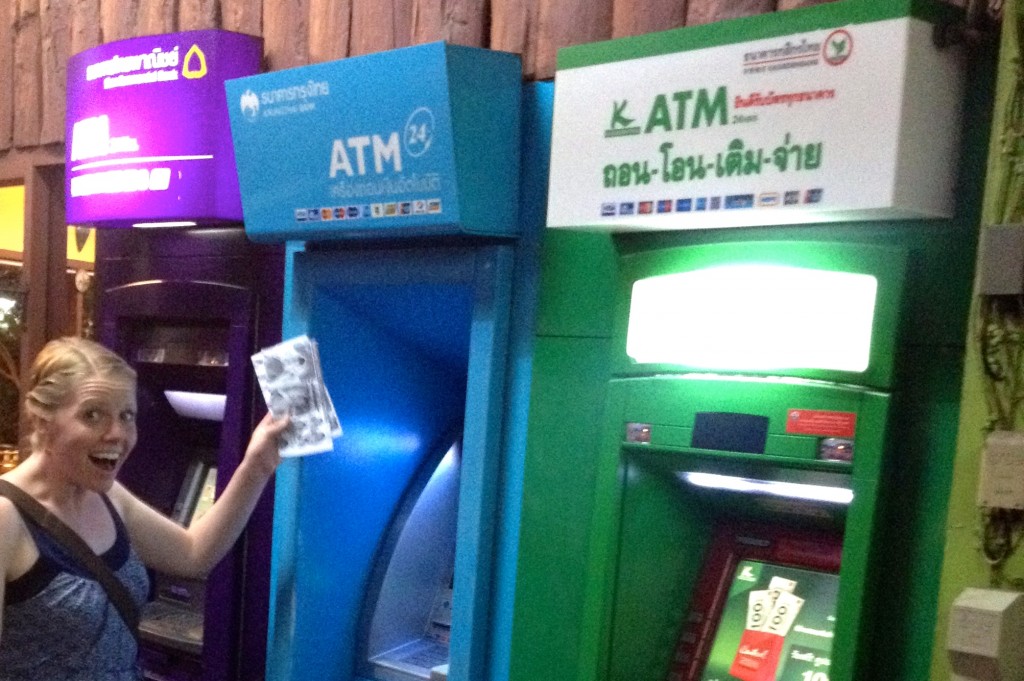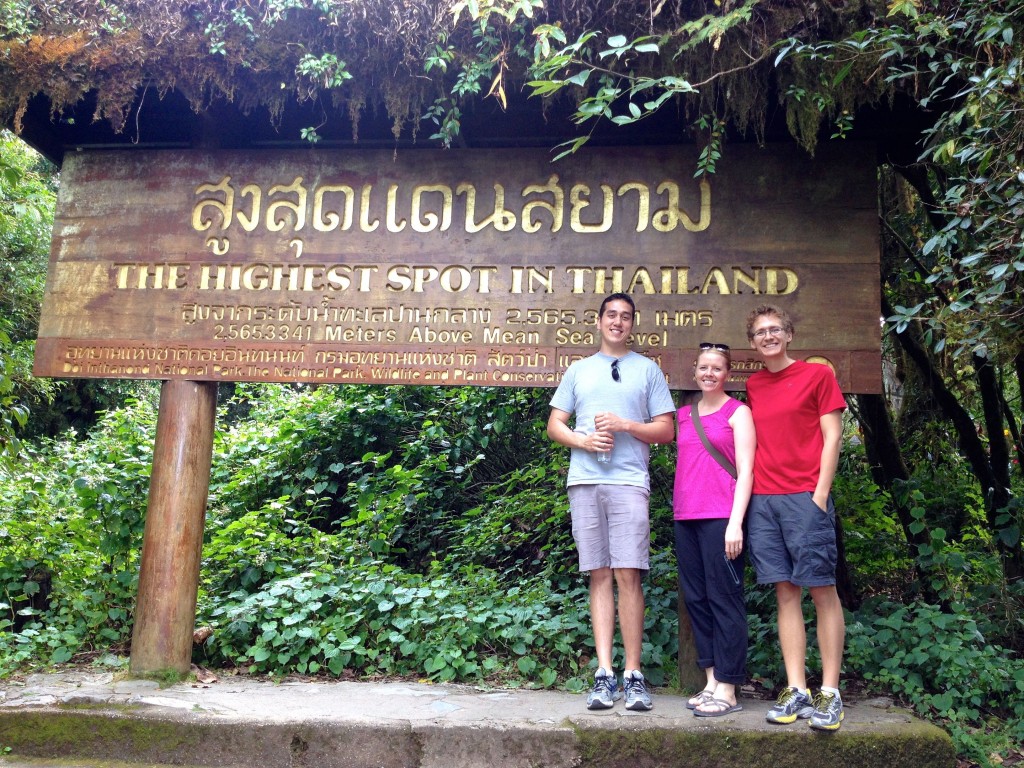
When you’re unemployed, it’s easy to drop everything when a friend is in town and just say, “Sure, we’ll visit the highest point in Thailand tomorrow.”
Kevin and I have come to realize that many of the things we enjoy the most about living abroad probably have more to do with being unemployed than they do with actually being abroad. We love having flexible schedules and being able to work on whatever interests us the most at the moment. We love being able to work whenever we want, wherever we want, and have completely lost track of the concept of a “weekend”. Our days are categorized as gym-days and non-gym-days now, which means I don’t hate Mondays anymore. Hooray!
There have been many moments where we wish we could’ve had this mini-retirement period from the comfort of our home in Seattle, where we’d be near to all of our family and friends. Here’s the thing though – moving to a city with such a low cost of living is a lot less scary than being out of work in a pricier place like Seattle. We had a mortgage back home in Seattle to worry about, and food costs a lot more than the $1/meal we’ve gotten used to here, and don’t even get me started on how much it costs to foot the bill for your own health insurance in the States. (Don’t worry, we have traveler’s insurance, it’s just a lot cheaper than health insurance in the States.)
While we’re definitely not planning to pick up and move abroad ever again after we get back home to Seattle, we’re thankful we got the chance to do this. We’ve spent a lot of time this Thanksgiving week thinking about things we’re thankful for, and we came up with a list of the 5 Reasons to Quit Your Job and Move Abroad.
It Could Save You Money in the Long Run
The number one lesson you’ll learn when you spend a year abroad is that you need a heck of a lot less than you thought you did. Less space. Fewer clothes. Less jewelry. Less money. Fewer pairs of shoes. In fact, you realize that having fewer possessions can actually make life more simple. Let me tell ya, I sure get dressed a lot faster with only a handful of outfits to choose from! There’s something really refreshing about simplifying your life. I think that’s an important lesson to learn, and living out of a duffel bag for a year forces you to learn it.
There’s also something magical about an extended period of unemployment that makes you really scrutinize every Baht (or every penny?) that you spend. Do I really need the higher quality hand soap? Can I wait to buy sunscreen because it might go on sale next week? Should I walk the 25 minutes to the cheaper store to save a few bucks? Do I really need to order bottled water with dinner? I hope this habit sticks with me after we go home, because maybe I’ll finally, finally be able to make a trip to Target without spending more than $60.
All these small things definitely do add up, but we think this trip has saved us a boatload of money because we’ve shifted our mindset on how big our home needs to be. Our apartment here in Chiang Mai is only 41 sq. meters (441 sq. feet). Before we signed our lease, I was pretty nervous about renting a place that small. I thought we’d kill each other! Since moving in, however,we’ve realized that 41 sq. meters is plenty of space for the two of us. When we were in Vietnam, we met one family of four who lived in an apartment this size and considered it to be plenty of space. I’m not saying I could peacefully share 441 sq. feet with three other people, but it did get me to thinking a little bit and makes me look at our 1000 sq. ft. house in Seattle a little bit differently.
That change of perspective is what can save you money. Before we left Seattle, we had been saving up to put a big addition on our home. For an old home, and with Seattle’s construction prices, a big addition is going to be in the 6-figures range. If we can avoid spending that money by doing with a smaller space, this trip will have paid for itself. Hurray!
You Will Finally, FINALLY, Catch up on Sleep
One of the most amazing things about moving abroad is that you suddenly find yourself with a lot more free time on your hands. While this is probably mostly due to the fact that neither of us has a “job” in the traditional sense right now, it’s also due in part to the fact that we don’t ever cook or clean anymore and also due to the fact that our social life is, um, pretty subdued now.
The only chores we have to do now are laundry and dishes (a maid service is included in our rent). We definitely don’t have any yardwork since we live in a condo. It’s so cheap and quick to go out for food that the only meal we ever cook is breakfast. We also both ditched our previous 1-hour each-way commutes. (Don’t get me started on commute times… what a waste of precious hours in our lives!)
Naturally, since I have some extra time on my hands, eight-hour nights of sleep have made a big come-back in my life. According to my Fitbit, I averaged 8 hours and 47 minutes of sleep per night this week. We have used an alarm clock exactly four times since moving to Thailand in late April. I probably haven’t regularly gotten this much sleep since I was an infant. When I worked at Boeing, I had to be out the door every day by 6:10am on the dot so I wouldn’t miss my vanpool. I’m finally working off the Boeing sleep deficit! YAY!
You Will Have Time to Make a Dent in Your Books Backlog
So like I said above, we have a lot more time on our hands. What do we do with all that time? Well, we do work for about 6 hours a day, 7 days a week. We’re not just being bums over here! But when we’re not working, we read… a lot. Before leaving Seattle, I was lucky to get through more than one book per month. Since we moved here almost 7 months ago, I’ve read 39 books, five of which were fairly dense programming books. I still have a pretty hefty backlog of books I want to read (140 titles and growing…), but there is finally time for it! Hurrah!
You Will Appreciate Things You Once Took for Granted
I know I’ve talked a lot about how I miss things like being near family and friends, wide sidewalks, reliable electricity and reliable internet. But there are a few things I really miss that surprised me.
I miss the smell of the Pacific Northwest. Pine, moss, freshly mowed grass, rain. Ah the smell of rain. I miss it.
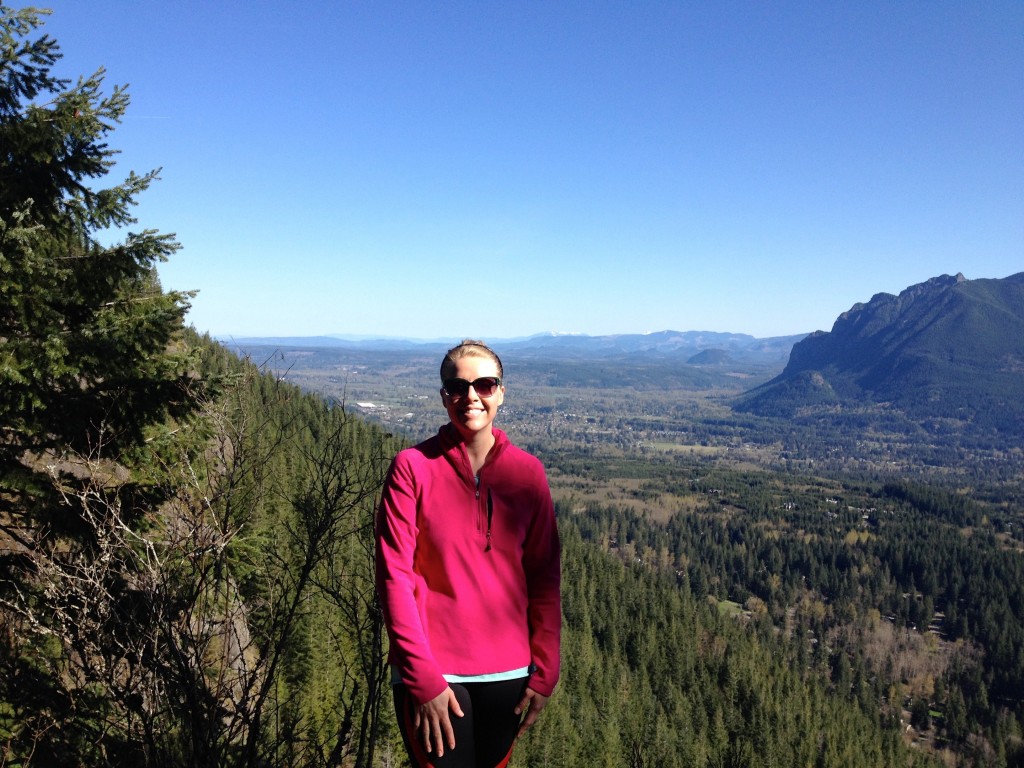
I can ALMOST smell the pine through this photo. If you’re reading this from the Pacific Northwest, go outside and take a big whiff of the wonderful air for me!
I miss seasons. Before you move to a tropical paradise, you get this idea in your head that the hot weather is idyllic, wonderful, perfect in every way. Once you get here and “swamp ass” becomes your biggest daily problem, you realize how much you love the seasons. (Sidenote: In Chiang Mai, where the daily high in the hot season is regularly over 100 degrees, why does everyone seem to favor leather chairs and cushions? I’ve have more than a few close calls where I’m pretty sure I almost lost half the back of my leg because my skin was SO stuck to the leather.) It really is true that a cold Winter makes those hot Summer days a whole lot more special.
Aside from just missing seasons, I miss the typical seasonal foods in the States. Spring Asparagus. Fall Butternut and Acorn Squash. Summer sweet corn. Oh lordy, the Fall peaches and Summer cherries… I am literally drooling at my laptop typing this. Since I’m missing out this year, will you please do me a favor and try out some of my favorite cold weather recipes? Butternut Squash and Caramelized Onion Galette. Acorn Squash Quesadillas. Winter Squash Soup. You will not regret it.
When we get back, I’m going to make a point to truly appreciate these things. I will be that lady. The lady on the hiking trail who keeps yelling “Doesn’t it smell amazing out here?! NATURE!” The lady who is grinning like an idiot at the Farmer’s market, smelling all the produce, buying ALL THE SQUASHES. I’m going to make myself sick off of cherries. Twice.
Personal Growth
There is no denying the fact that living abroad will change you.
Wandering around a loud, dusty bus station in Bangkok at 6am after getting off of an overnight bus in a complete daze (before coffee!) forces you to learn to just go with the flow. Figuring out how to explain to a bus driver that you need to be let off two miles before you reach town is an exercise in communication skills when you only speak English and he only speaks Thai. Simply living in a country where you don’t speak the native language forces you to learn to rely on the kindness of others, and is a daily exercise in patience. It also makes you realize the power of a simple smile.
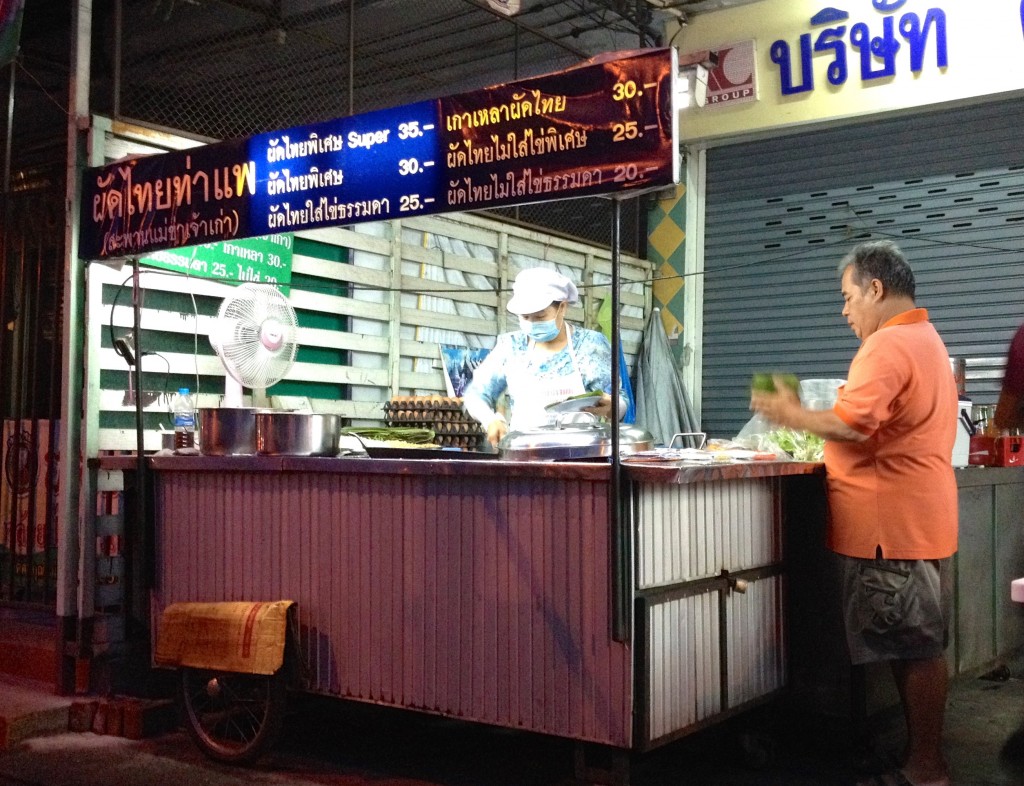
Communication 101: If the signs are all in Thai but the food looks good, just walk up and say “One please!” and see what they give you.
I’m also fairly certain that walking past a Durian truck every day has hardened me against bad smells, which I hear comes in handy once you have kids. (Don’t know what durian is? It’s a fruit that smells like death. It’s banned in the subway systems in Singapore as well as in many hotels across Southeast Asia due to the odor.)
Happy Thanksgiving, Everyone!
Alright, I’ve laid out my list of the top 5 things we’re thankful for from our last 7-months abroad. What are you thankful for this Thanksgiving holiday?
